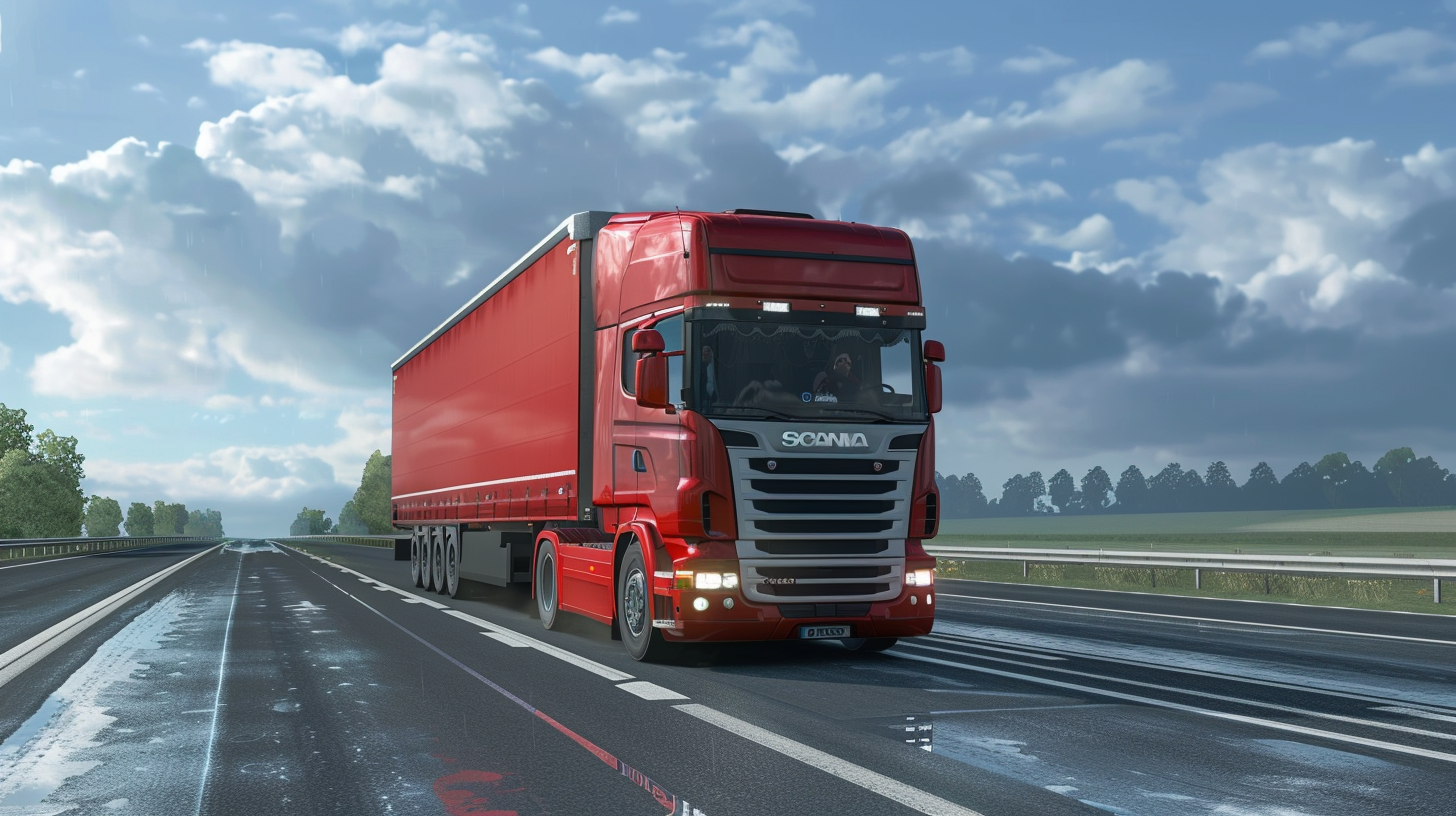Follow Us
10 Street Name, City Name
Country, Zip Code
555-555-5555
myemail@mailservice.com
7 Most Common Types Of Freight Trucks
Regarding transporting goods, freight trucks are one of the most common and versatile options. There are many different types of freight trucks, each designed to meet specific needs and requirements.
They play an important role in the shipping of goods and materials around the world. They come in all shapes and sizes, from small pickups to large semi-trailer trucks. This blog post will cover the 7 most common types of freight trucks and their uses.
Dry Van Trucks
Dry Van Trucks are the most common type of freight truck and are used to transport non-perishable goods. The truck is usually a large box on wheels, with an enclosed cargo area that is accessible from the rear.
These trucks are designed to carry palletised or boxed items, as well as other bulk items. Dry van freight trucks come in a variety of sizes, allowing them to be used for a variety of freight needs.
Read More: Who Is A Freight Broker And What Do They Do?
Flatbed Trucks
Flatbed trucks are designed to carry oversized cargo that is too large or bulky for a dry van truck. They have an open-top trailer with no walls or roof and are typically used for carrying lumber, construction materials, and other large items. The size of the flatbed can vary depending on the type of cargo being transported.
Refrigerated Trucks
Refrigerated trucks are specifically designed to transport perishable goods, such as food and medical supplies. They have an insulated box trailer that is temperature-controlled to keep the cargo at a specific temperature.
Refrigerated trucks can also be equipped with GPS tracking systems and other features to help monitor the condition of the cargo during transit.
Tanker Trucks
Tanker trucks are used to transport liquids, such as fuel, oil, and chemicals. They have a large cylindrical tank that is designed to hold the liquid cargo. Tanker trucks can also be equipped with specialized pumps and valves to help with loading and unloading the cargo.
Additionally, tanker trucks are typically made of stainless steel or aluminium to protect their contents from corrosion.
Read More: Consolidated Freight: How Can Shippers Benefit?
Intermodal Trucks
Intermodal trucks are used for transporting shipping containers between different modes of transportation, such as from a port to a rail yard or from a rail yard to a warehouse. These trucks are typically equipped with a specialized chassis that can safely transport shipping containers.
Dump Trucks
Dump trucks are most commonly used for construction and landscaping purposes. They are typically equipped with a large open-top body that can be tilted or raised their dump their contents.
Dump trucks can also be fitted with specialized bodies, such as side dump trailers, that allow the truck to dump its load from one side. These types of vehicles are incredibly useful for hauling loose materials such as dirt, gravel, and sand.
Speciality Trucks
Speciality trucks are designed for specific purposes and can vary widely in their design and functionality.
For example, car carriers are used for transporting cars, while livestock trailers are designed for transporting livestock. Other examples of speciality trucks include fire trucks, garbage trucks, and tow trucks.
Read More: How Long Does Customs Clearance Take?
Choosing The Right Type Of Freight Truck
Choosing the right type of freight truck is an important part of the shipping process. When selecting a freight truck, it's important to consider the type of cargo being shipped, the distance to be travelled, and any specific requirements or regulations.
Here are some tips for choosing the right type of freight truck:
- Consider the Type of Cargo: The type of cargo being shipped is one of the most important factors to consider when choosing a freight truck. Different types of cargo have different requirements, such as temperature control, special handling, or oversized dimensions.
- Consider the Distance to be Traveled: The distance to be travelled is also an important factor to consider. Longer distances may require a truck with a larger fuel tank or a more comfortable cabin for the driver.
- Consider Regulations and Requirements: Regulations and requirements can also play a role in choosing the right type of freight truck. For example, some hazardous materials may require a specialized tanker truck, while oversized cargo may require a permit and an escort vehicle.
- Consult with a Freight Broker: Working with a freight broker can be a helpful way to choose the right type of freight truck. A freight broker can provide expertise on the different types of trucks available and help you select the best option for your needs.
In addition to these tips, it is also important to keep in mind the budget and timeline when selecting a freight truck. It is important to be aware of all costs associated with the truck rental and delivery, including fuel, insurance, and any additional fees. Additionally, it is important to consider the time frame for the delivery and make sure that the selected truck will be able to meet your timeline requirements.
Safety Considerations:
Safety is always a top priority when selecting a freight truck. Before selecting a truck, it is important to consider safety requirements such as the condition of the truck, driver experience and qualifications, and any special permits or licenses required for the type of cargo being shipped.
Condition Of The Truck:
When choosing a freight truck, it is important to make sure that the truck is in good condition and is capable of safely transporting the cargo. Make sure to inspect the truck before selecting it and check for any signs of wear or damage that could affect its performance or safety.
Driver Experience And Qualifications:
It is important to make sure that the driver selected to operate the freight truck has adequate experience and qualifications. The driver should have a valid commercial driver's license (CDL) and be familiar with the type of cargo being transported.
Special Permits Or Licenses:
Some types of cargo may require special permits or licenses for transport. Make sure to check any state or federal regulations and requirements that apply to the type of cargo being shipped, as well as any special permits or licenses that must be obtained too to transport it safely.
Insurance:
It is important to make sure that the selected freight truck is properly insured. The truck should be covered by a commercial insurance policy, and any additional coverage should be tailored to the type of cargo being transported. It is also important to check with the insurance provider to make sure that the coverage limits are adequate for the value of the cargo being shipped.
Conclusion
Freight trucks are an essential part of the transportation industry, allowing goods to be transported quickly and efficiently across long distances. By understanding the different types of freight trucks available and their uses, businesses can make informed decisions when choosing the right type of truck for their shipping needs.
Whether you need to transport non-perishable goods, refrigerated products, or oversized cargo, there is a freight truck available to meet your needs.










